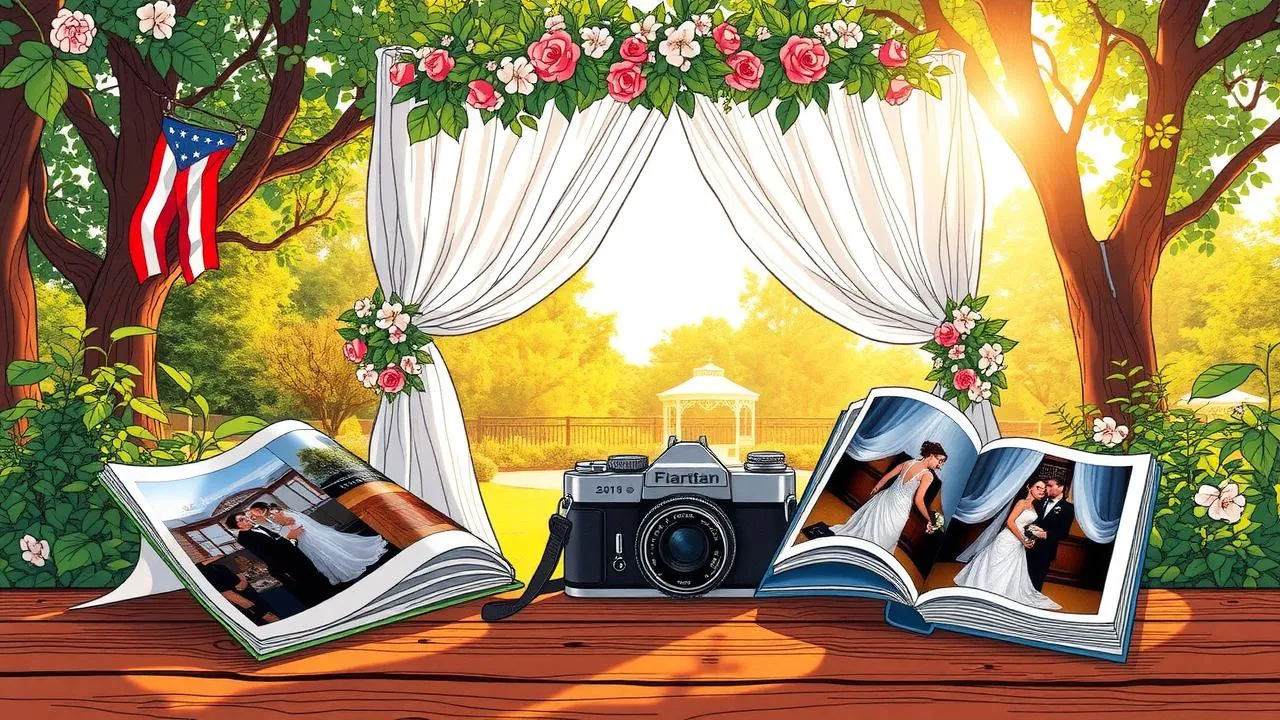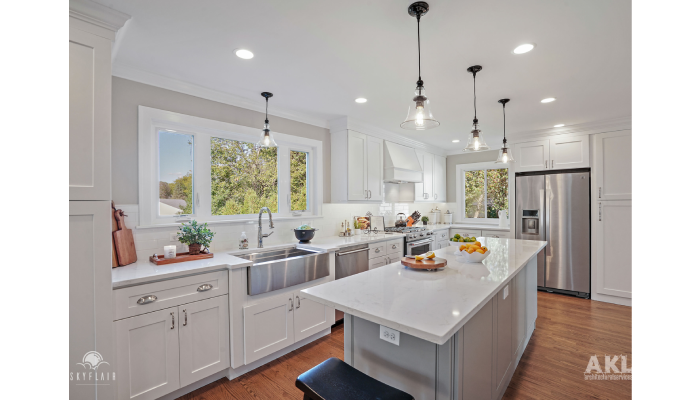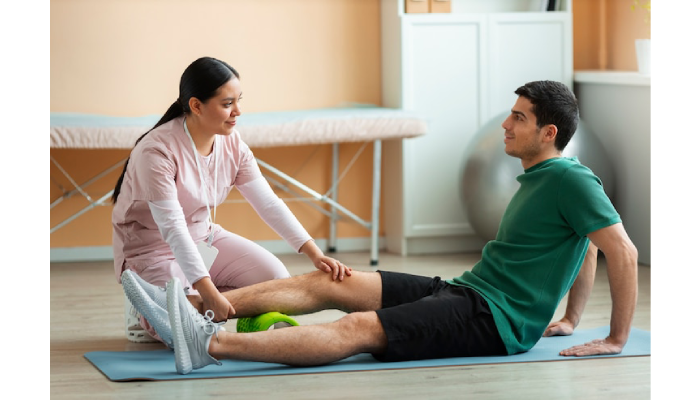When reviewing the portfolios of wedding photographers in Atlanta, it’s important to take a thoughtful approach. Start by identifying different photography styles, as each one tells a unique story that should align with your wedding vision. Analyzing the portfolio’s content is also crucial; a variety of settings and moments need to be captured consistently throughout the day. Evaluate their technical skills by checking for sharpness and color accuracy in images. Don’t forget to read client reviews which highlight reliability and professionalism. Ultimately, trust your instincts during consultations; feeling comfortable can lead to great results on your special day.
1. Identifying Different Wedding Photography Styles
When reviewing wedding photographers in Atlanta, it is important to recognize the variety of photography styles available. Familiarize yourself with styles like documentary, traditional, fine art, and editorial. Each of these styles tells a unique story and evokes different emotions, so you should choose one that aligns with your vision for your wedding day. For instance, documentary photography often captures candid moments as they unfold, while traditional photography focuses on posed portraits and key family shots.
Understanding composition techniques is also crucial. Look for how photographers use framing, symmetry, and negative space in their work. These techniques can enhance the overall feel of the images and showcase the essence of your wedding. Additionally, pay attention to the lighting choices in their portfolios. Natural light can create a warm, intimate feel, perfect for candid shots, while studio lighting may be used for more polished, posed images.
Color and tone play significant roles too. Some photographers may favor vibrant colors to create a lively atmosphere, while others may choose muted tones for a softer, romantic look. Beyond aesthetics, consider how each photographer tells a story through their images. Reflect on whether they capture the emotions and atmosphere of important moments, as this will shape your memories.
You might also find that some photographers blend different styles, creating a personalized approach that can make your wedding photos truly unique. Look at their use of props and settings that complement their chosen style. This adds depth to the images and can enhance the narrative of your wedding day.
Finally, think about how the photographer’s style meshes with your wedding theme and venue. A seamless connection between the two can lead to a more cohesive presentation. To get a comprehensive understanding, ask for sample albums or full wedding galleries. This will give you insight into how their style translates across an entire event, rather than just selected highlights. Trust your instincts on which style resonates with you, as this will guide you towards the right choice.
2. Analyzing the Content of Portfolios
When you analyze the content of wedding photographers’ portfolios, start by looking for a mix of settings. It is important to see how they handle both outdoor ceremonies and indoor receptions, as this shows their versatility in different environments. The portfolio should also tell the story of the wedding day, capturing everything from emotional moments to key details and lively celebrations. Consistency in image quality is crucial; you want to feel that each photo is equally compelling.
Pay attention to the variety of subjects in the images. A good photographer should be able to capture not just the couple, but also families and guests, showcasing the interactions and emotions that make each moment special. Look for a good balance between candid shots and posed ones, as this variety will provide a fuller representation of your day.
Details matter too. Take a close look at how the photographer captures items like rings, flowers, and decorations. These elements contribute to the overall story and atmosphere of your wedding. Additionally, examine the angles and perspectives used in the portfolio. Unique viewpoints can make even ordinary scenes appear artistic and engaging.
Group shots are another area to assess. Clear and well-composed images that highlight each individual will be essential for family memories. Consider the backgrounds in the photos as well; how subjects are framed within their environments can greatly enhance the visual appeal.
Finally, review the emotional tone of the images. Are they joyful, romantic, or candid? This will give you insight into the photographer’s ability to capture the essence of your wedding day. Overall, ensure that the portfolio reflects a cohesive style, demonstrating the photographer’s unique approach across different weddings.
- Look for a variety of settings in the portfolio, including outdoor ceremonies and indoor receptions, to assess adaptability to different environments.
- Ensure that the portfolio shows a progression of the wedding day, capturing emotional moments, key details, and lively celebrations. Consistency in quality across images is also essential.
- Pay attention to the variety of subjects, including couples, families, and guests, to see how well the photographer captures diverse interactions and emotions.
- Check for the range of candid versus posed shots. A good balance can yield a fuller representation of your wedding day.
- Examine the details captured, such as rings, flowers, and decorations. These small elements contribute significantly to the overall story of your wedding.
- Look for creative angles and perspectives in the portfolio. Unique viewpoints can add interest and artistry to the images.
- Assess how the photographer handles group shots. Look for clear and well-composed images that highlight each individual.
3. Evaluating the Photographer’s Technical Skills
When reviewing a wedding photographer’s portfolio, it’s essential to pay attention to their technical skills. Start by examining the sharpness of the images, ensuring they are clear and well-focused. Check for proper exposure and color accuracy, as these elements greatly affect the overall quality of the photos. A talented photographer should excel in capturing moments, especially in challenging lighting situations, such as dimly lit receptions or bright outdoor ceremonies.
Look for their use of depth of field, which can create beautiful, dreamy backgrounds while keeping the subjects in sharp focus. Composition techniques like the rule of thirds can enhance the visual appeal of the images. Consistency is also key; the photographer should maintain similar exposure levels across various lighting conditions, showcasing their adaptability to different environments throughout your wedding day.
Motion capture is another vital skill to evaluate. Key moments like the first dance or cake cutting should be sharp and clear, without any blurriness. The photographer’s editing style is equally important; good editing should enhance the images without appearing overly manipulated or artificial.
Additionally, consider their ability to work with artificial lighting, such as flash or studio lights, especially for indoor venues where natural light may be limited. Look for images that strike a balance between highlights and shadows, ensuring no details are lost in overly bright or dark areas. Pay attention to close-ups, as important details should be captured with precision and clarity.
Finally, inquire about the camera settings used in their portfolio. Understanding their technical choices can give you insight into their knowledge and expertise, helping you feel more confident in your decision.
4. Checking Client Reviews and Testimonials
When reviewing wedding photographers in Atlanta, client reviews and testimonials are invaluable. Pay attention to feedback that highlights the photographer’s reliability and professionalism, especially regarding their ability to manage timelines effectively. Positive reviews often mention specific moments captured beautifully, such as a tearful exchange during the ceremony or a joyful dance at the reception. Look for testimonials discussing the quality and speed of image delivery after the wedding, as this can greatly impact your overall satisfaction.
It’s also important to find reviews that talk about how well the photographer blended into the background, capturing candid moments without being intrusive. A calm and friendly demeanor can enhance the experience for both you and your guests, so check for comments about the photographer’s presence on the wedding day. Additionally, reviews that detail how the photographer handled unexpected situations can provide insights into their problem-solving skills and adaptability.
Assess the honesty of the testimonials by looking for detailed accounts rather than generic praise, as this often indicates genuine experiences. Feedback regarding pre-wedding communication and planning is crucial as well; it can reflect the photographer’s organization and professionalism. Consider seeking reviews from clients with similar wedding styles or venues to gauge how the photographer has performed in comparable circumstances. Consistency in client feedback across platforms can help you better understand the photographer’s overall reputation. Lastly, inquire if the photographer can provide references for further insights into their services.
5. Understanding Communication and Personality
Pay attention to how the photographer communicates. Their style, responsiveness, and willingness to listen to your vision are crucial. You want someone who doesn’t just hear you, but engages thoughtfully with your ideas. During initial consultations, see if you feel at ease; a relaxed atmosphere can lead to better collaboration and stunning results. Look for signs that the photographer is open to discussing your ideas and concerns, as this reflects their respect for your input.
A flexible attitude toward feedback and changes is also important. You’ll want a photographer who can adapt and enhance your experience during the planning stages. Their professionalism in communication is key; timely responses and clear explanations about their services, pricing, and contracts can prevent any surprises down the line.
Enthusiasm for your wedding ideas can make the process more enjoyable and engaging. Observe their body language during meetings; a photographer who is genuinely interested will display open and welcoming gestures, making you feel valued. Additionally, assess how well they articulate their vision for your wedding photography to ensure it aligns with your expectations. Trust your instincts about their personality, as a good rapport often leads to better collaboration and more natural-looking photos.
6. Assessing Experience and Professionalism
When reviewing wedding photographers, it’s important to evaluate their experience and professionalism. Start by considering how many years they have been in the business and the number of weddings they have photographed. Experienced photographers tend to be more adaptable, allowing them to handle unexpected challenges with ease. You should also look at their contracts to confirm that they have clear terms and backup plans in case of equipment failures. Membership in professional organizations can indicate a dedication to maintaining industry standards, which is a positive sign. Additionally, check whether the photographer has insurance coverage; this can protect you from unforeseen circumstances that may arise on your special day.
Inquire about their approach to planning and timelines. A professional photographer will have a structured strategy for the wedding day, ensuring that everything flows smoothly. Their ability to collaborate with other vendors is equally crucial; effective teamwork can significantly enhance your overall wedding experience. Pay attention to how they handle stress on the wedding day as well. A calm presence can help alleviate your nerves amidst the hustle and bustle of the event.
Look for testimonials that highlight their punctuality and organizational skills during past weddings. This aspect is vital for ensuring that everything runs on schedule. Finally, consider their reputation within the industry. A photographer who has good relationships with other vendors is likely to be respected and reliable. Asking about their experience with various wedding styles and sizes will help you determine if they can meet your specific needs.
7. Reviewing Editing Style and Turnaround Time
When reviewing a photographer’s portfolio, pay attention to their editing style. Look for consistency across the images, as this can tell you a lot about their artistic vision. Does their editing align with your personal taste? Some photographers may favor a natural look, while others might use more creative effects. Also, consider the clarity in their color grading; coherent editing enhances the storytelling of your wedding day.
Turnaround time is another critical aspect. Ask about their average time for delivering the edited images, as this can impact your overall experience. You want to know when you can expect to relive those special moments through your photos. Additionally, inquire about how many images you can expect to receive, as this can vary significantly between photographers.
Look for testimonials that highlight clients’ satisfaction with the final images, especially regarding the quality of the edits. A photographer may offer different packages, such as basic edits versus more elaborate retouching, which can help you choose based on your needs.
Lastly, some photographers provide a sneak peek shortly after the wedding. This can be a delightful way to maintain excitement while waiting for the full collection. Ensure the editing style complements your wedding theme, enhancing the aesthetic you envision for your special day.
8. Exploring Special Services and Add-Ons
When reviewing wedding photographers in Atlanta, it’s wise to ask about special services and add-ons that can elevate your photography experience. For instance, engagement sessions can be a great way to build rapport with your photographer while capturing beautiful moments before the big day. Custom albums are another option, allowing you to showcase your favorite images in a way that matches your wedding theme, creating a cohesive visual story.
You might also want to know if the photographer provides same-day edits or preview slideshows. These can add a unique touch to your reception, letting guests see highlights from your day almost instantly. Exploring unique products like specialty prints or canvases can help you display your favorite moments in your home, adding a personal touch to your decor.
Additionally, consider asking about the availability of a second shooter. This can enhance coverage, capturing diverse perspectives and candid moments throughout your wedding. If you’re planning a destination wedding, inquire about travel packages that might simplify arrangements.
Look for other services that could enrich your experience, such as photo booths, videography, or even drone photography. These options can provide extra fun and memories for you and your guests. Flexibility in packages is also essential; customizable options allow you to tailor services to meet your specific needs.
Lastly, ask if they can create a wedding website or an online gallery for sharing images with friends and family. This can make it easier for everyone to relive your special day. Keep in mind how these add-ons fit into your budget, as some may require additional investment. Understanding their value will help you decide which services enhance your overall wedding experience.
9. Familiarity with Wedding Venues
When selecting a wedding photographer in Atlanta, it’s crucial to consider their familiarity with your chosen venue. A photographer who has previously worked at the venue can navigate it more effectively, enhancing the overall shooting process and leading to better photo quality. Look for testimonials from couples who have had their weddings at the same venue, as these can provide insight into how adaptable the photographer is in that specific environment.
Inquire whether the photographer visits the venue beforehand to scout for the best locations. This pre-planning can foster creativity and contribute to stunning compositions. Understanding the lighting conditions at your venue is essential; different spaces, whether outdoor gardens or indoor ballrooms, can present unique challenges. Ask the photographer about their experience with these conditions, as this knowledge can significantly impact image quality.
Moreover, consider whether the photographer can suggest specific spots or angles that work well for photography. Their familiarity with the venue can lead to creative opportunities that align with your vision. Also, assess their understanding of venue restrictions or guidelines, as these can influence their shooting approach. Lastly, ask if they have any connections with venue staff, as this can facilitate smoother coordination on your wedding day, making the experience even more enjoyable.
10. Trusting Your Instincts When Choosing
Trusting your instincts is crucial when selecting a wedding photographer in Atlanta. Pay attention to how you feel during your interactions. If a photographer makes you feel comfortable and inspired, it’s often a sign that they’re a good fit for your big day. Think about whether their overall vibe instills confidence in their ability to capture your special moments.
Consider how their personality aligns with yours, as a good rapport can lead to a more relaxed atmosphere during the shoot. It’s also important to trust your feelings about their work. If their style resonates with you, even if it doesn’t follow current trends, that personal connection can make all the difference.
Assessing how you feel about their previous work is another key factor. If their past images evoke strong emotions or memories for you, it could be a sign they will do the same for your wedding. Reflect on your experience during consultations; a positive interaction can indicate a strong potential for collaboration.
Finally, trust your gut regarding their professionalism and reliability. Based on your research and interactions, if you feel they are committed to understanding your vision, that’s a reassuring sign. Remember, your wedding photographer will play a significant role in preserving your memories, so trusting your instincts is vital.
Frequently Asked Questions
What should I look for in a wedding photographer’s portfolio?
When reviewing a wedding photographer’s portfolio, pay attention to their style, consistency, and the emotions captured. Look for a variety of shots, including candid moments and posed portraits, to ensure they can handle different situations.
How can I tell if a wedding photographer has experience?
You can gauge a photographer’s experience by looking at the number of weddings they’ve shot, the range of venues they’ve worked at, and the diversity in their portfolio. Testimonials and reviews can also provide insight into their ability to deliver great results.
Why is it important to check a photographer’s editing style?
A photographer’s editing style can greatly affect the final look of your wedding photos. Ensure that their editing aligns with your personal taste, whether you prefer bright and airy images or darker, moody tones.
Should I compare portfolios of multiple photographers?
Yes, comparing portfolios from different photographers allows you to see a wider range of styles and approaches. This can help you identify which photographer’s work resonates with you the most, making your decision easier.
What do I do if I have specific shots in mind?
If you have specific shots you want, look for photographers who have captured similar images in their portfolios. Don’t hesitate to reach out and discuss your vision with them, as many photographers appreciate collaboration and can adapt to your preferences.
TL;DR To choose the right wedding photographer in Atlanta, first identify various photography styles that align with your vision. Analyze portfolio content for variety and emotional depth, evaluate technical skills in sharpness and composition, and check client reviews for professionalism. Consider the photographer’s communication style and personality, assess their experience, and inquire about editing styles and turnaround times. Explore any special services offered, ensure familiarity with your wedding venue, and trust your instincts during consultations. Following these steps will help you make an informed decision for your big day.

Mary Burns is a dedicated writer focusing on health and fitness topics. With a passion for promoting wellness and vitality, Mary shares her knowledge and expertise through engaging and informative blog posts.




